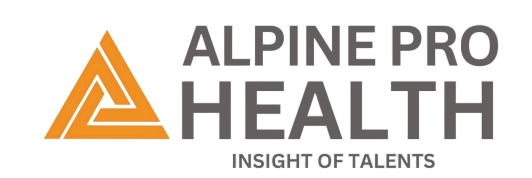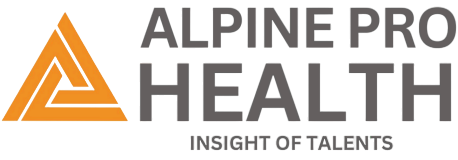Medical coding and billing serve as the foundation of the healthcare revenue cycle. As we step into 2025, the industry is undergoing significant transformation driven by technological advancements, regulatory updates, and a renewed focus on value-based care. Whether you’re a provider, billing company, or RCM vendor, staying ahead of these changes is crucial to maintaining compliance, improving reimbursements, and delivering value to patients.
In this article, we’ll take a closer look at 7 game-changing trends in medical coding and billing that are set to shape the healthcare landscape in 2025 and beyond.
1. Artificial Intelligence (AI) and Machine Learning Integration
AI has transitioned from a trendy concept to an essential tool in the Medical Coding industry. In 2025, AI and machine learning are helping healthcare providers streamline complex coding processes, identify documentation gaps, and predict claim outcomes.
Key Benefits:
- Auto-suggestions for codes based on clinical documentation
- Real-time error detection and correction before claim submission
- Predictive analytics to prevent denials and reduce revenue leakage
AI-powered tools not only improve coding accuracy but also significantly reduce administrative burden on healthcare teams.
2. Natural Language Processing (NLP) for Chart Abstraction
NLP is transforming how coders interact with electronic health records (EHRs). This technology enables machines to understand unstructured clinical notes and convert them into actionable, codable data.
Why It Matters in 2025:
- Enhances retrospective and concurrent HCC reviews
- Speeds up chart auditing for compliance and quality assurance
- Reduces manual abstraction errors and improves coder productivity
With increasing documentation demands and complex payer rules, NLP will be an indispensable asset to coding workflows.
3. Expansion of Value-Based Care & Risk Adjustment Coding
The shift toward value-based care is no longer optional; it’s becoming the standard. In 2025, risk adjustment coding is gaining even more importance, particularly in Medicare Advantage, ACA marketplaces, and ACO models.
Trends to Watch:
- Increased focus on accurate HCC coding and RAF(Risk Adjustment Factor) optimization
- Year-round prospective and concurrent coding reviews
- Greater scrutiny from CMS audits like RADV(Risk Adjustment Data Validation)
medical coding and billing teams must prioritize documentation that supports chronic conditions, treatment plans, and ensures compliance with updated HCC models.
4. Real-Time Eligibility and Prior Authorization Checks
One of the leading causes of claim denials is the lack of eligibility verification and missing prior authorizations. However, in 2025, automated solutions are making real-time checks a standard step in claims processing.
Impact:
- Improves first-pass claim acceptance rate
- Eliminates manual insurance verification bottlenecks
- Reduces claim rework and patient dissatisfaction
Advanced RCM platforms now integrate directly with payer APIs to fetch eligibility and authorization status in seconds.
5. Remote & Global Medical Coding Workforce
The post-pandemic world normalized remote work, and in 2025, coding operations are increasingly handled by a global workforce. Outsourcing to offshore coding firms with certified professionals has become a strategic cost-saving measure.
Advantages:
- Access to 24/7 operations across time zones
- Reduction in labor and training costs
- Scalability during peak coding seasons or audit periods
However, it’s critical to partner with vendors that are HIPAA-compliant and adhere to SOC 2 and ISO standards to maintain data security and quality.
6. E/M Coding Changes & Regulatory Compliance
Evaluation and Management (E/M) coding guidelines continue to evolve, especially for outpatient and telehealth visits. In 2025, staying up to date with CMS and AMA updates is crucial to avoid denials and ensure accurate reimbursement.
Key Focus Areas:
- Updates to time-based coding and medical decision-making criteria
- Continued growth of telehealth and remote patient monitoring (RPM) codes
- Stricter requirements for documentation integrity and medical necessity
Ongoing coder education and regulatory monitoring are essential to navigate this dynamic environment.
7. Enhanced Denial Management and Analytics
In 2025, revenue cycle management (RCM) teams are no longer waiting for denials to react. Instead, they are becoming proactive by leveraging real-time analytics and denial prevention tools. Moreover, the use of dashboards, KPI tracking, and denial root cause analysis is increasingly becoming standard practice across the industry.
Why This Matters?
- Allows early detection of trends by payer, provider, or code
- Improves appeal turnaround times and success rates
- Helps in creating feedback loops to front-end registration, coding, and billing
A data-driven approach ensures that providers don’t just fix denials, they prevent them altogether.
How Alpine Pro Health Is Leading the Future of Medical Coding & Billing?
At Alpine Pro Health, we’re leading the way in these transformative trends. In addition, as a trusted partner to healthcare providers across the U.S., we offer:
- AI-powered coding & chart review platforms
- Certified coders (AAPC & AHIMA) with multi-specialty expertise
- Real-time eligibility, claim scrubbing, and denial management
- Adherence to HIPAA, ISO 9001, ISO 27001, and SOC 2 compliance standards
- Worldwide service model offering scalable and budget-friendly solutions
Our team combines technology, clinical insight, and deep coding expertise to ensure our clients not only keep up with 2025’s trends they thrive in them.
📞 Ready to upgrade your medical coding and billing strategy?
Contact Us today to discuss how we can support your RCM goals.
Conclusion
The Medical Coding and billing landscape in 2025 is more data-driven, technology-enabled, and value-focused than ever before. By embracing these game-changing trends, healthcare providers and RCM companies can ensure higher reimbursement, fewer denials, and a streamlined revenue cycle.


